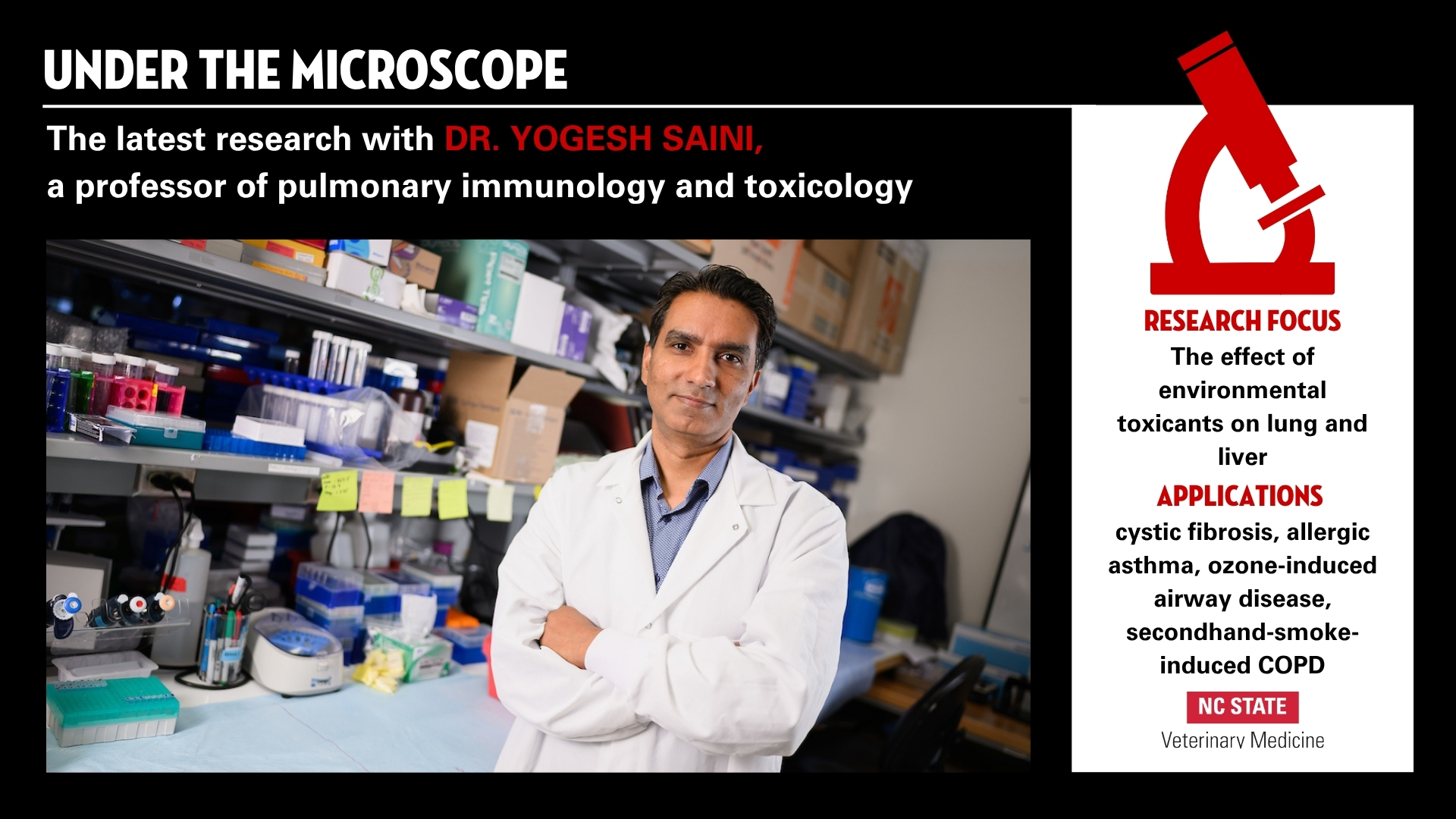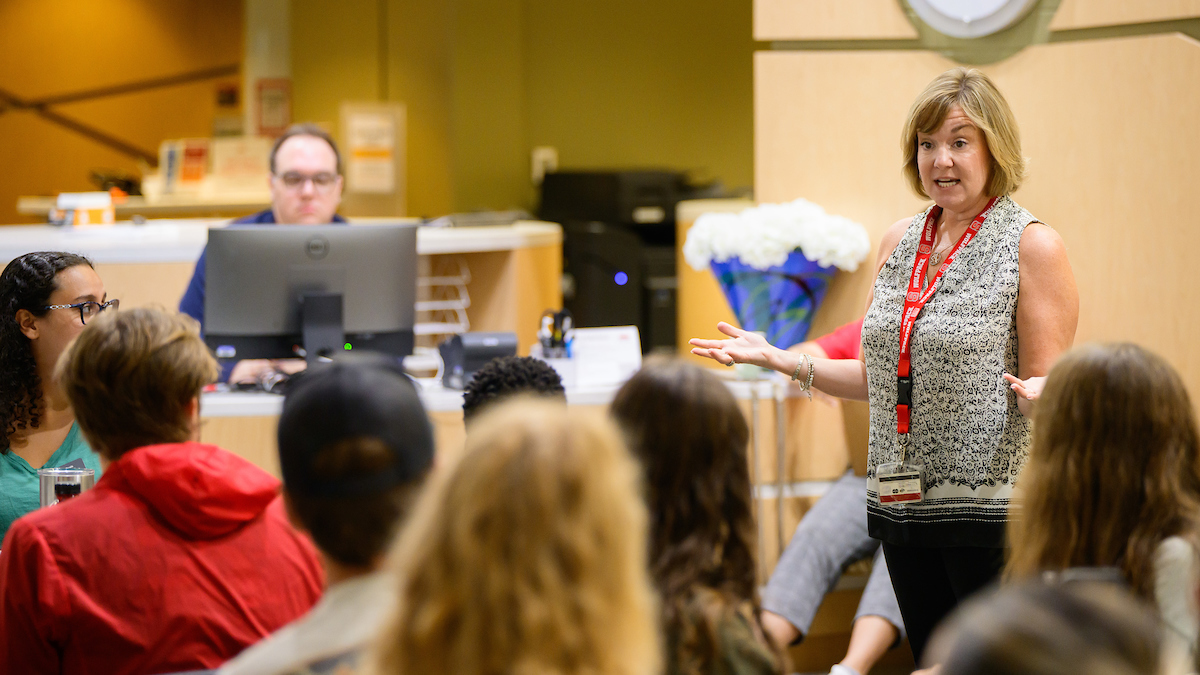NC State Veterinary Medicine Research Roundup, August 2022
A look at some of the latest published studies from the CVM.
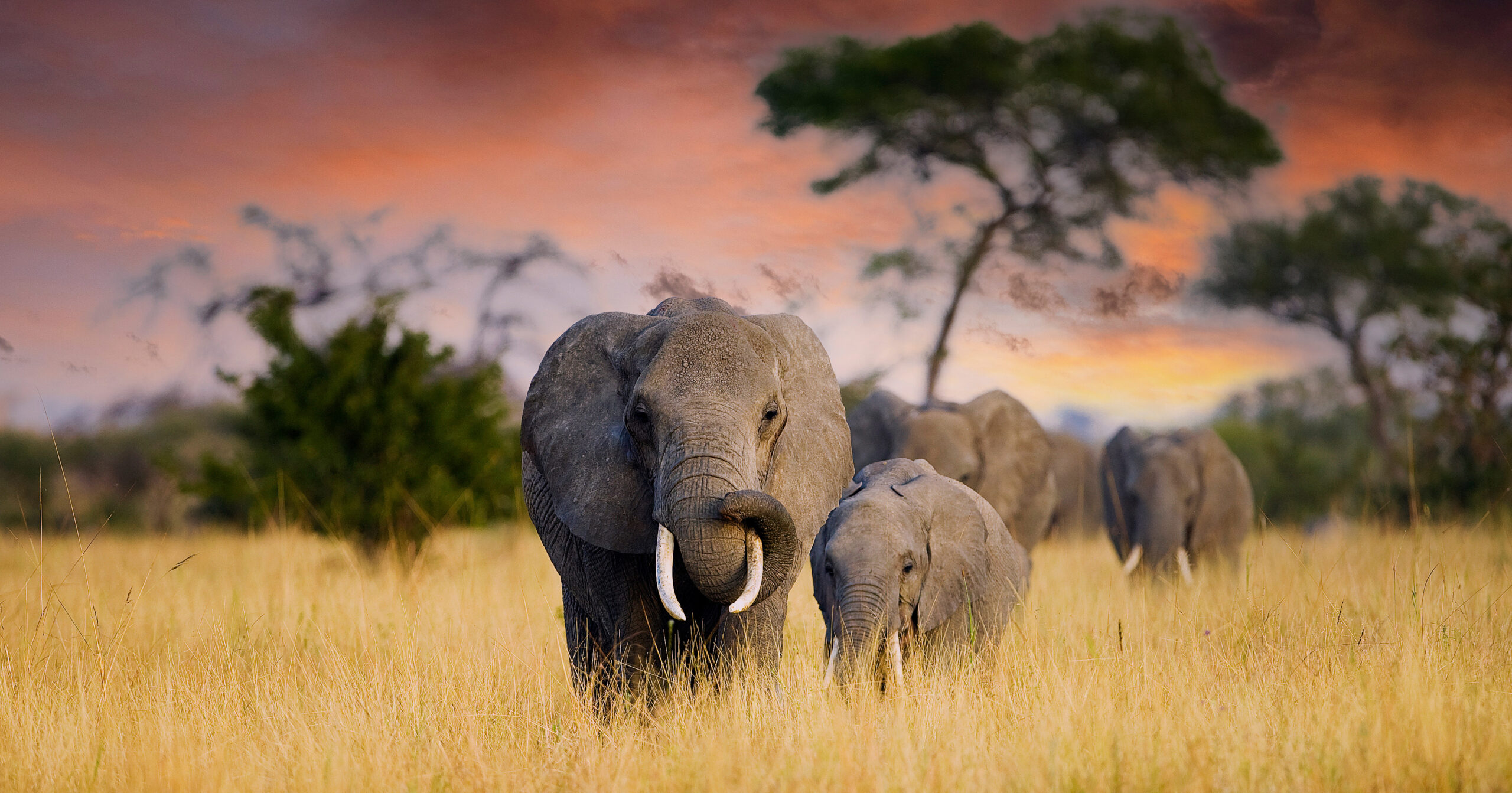
Nolan Honored for Advancements in Feline Cancer Research
The American Veterinary Medical Association has named Mike Nolan, professor of oncology at the NC State College of Veterinary Medicine, as winner of the 2022 American Veterinary Medical Foundation /EveryCat Health Foundation Research Award.
Established in 2009, the award honors a candidate’s contribution to advancing feline health through research.
“Dr. Nolan has been instrumental in important discoveries that are changing our understanding of the development and treatment of cancer in cats and controlling pain in feline cancer patients,” said Lori Teller, president of the AVMA. “Dr. Nolan’s vision and innovative approach to the treatment of feline cancer makes him extremely deserving of this award.”
Nolan, who earned a Ph.D. in radiation and cancer biology at Colorado State University and is board certified in radiation oncology from the American College of Veterinary Radiology, has dedicated much of his work to the treatment of feline cancer. He has also contributed his skills in radiation oncology to collaborative work in feline gastrointestinal cancer and feline urinary interstitial cystitis.
Studying the Impact of Reproductive Tumors on Elephant Conservation Efforts
Both Asian and African elephants are endangered, and conservation efforts aim to minimize negative impacts to each species while increasing their population sizes. Tumors, both benign and malignant, can have a negative effect on conservation by limiting reproduction. This study, conducted by a research team that includes NC State members Tara Harrison, Anneke Moresco and Brigid Troan, compared the prevalence of such tumors across a variety of animal species, including humans. Treatment options in human medicine are reviewed to inform decision-making in elephants.
The study was published in the journal Animals.
Read it here: https://www.mdpi.com/2076-2615/12/15/2005/htm
Understanding the Rate of Aging in Dogs and Mitigating Its Impact
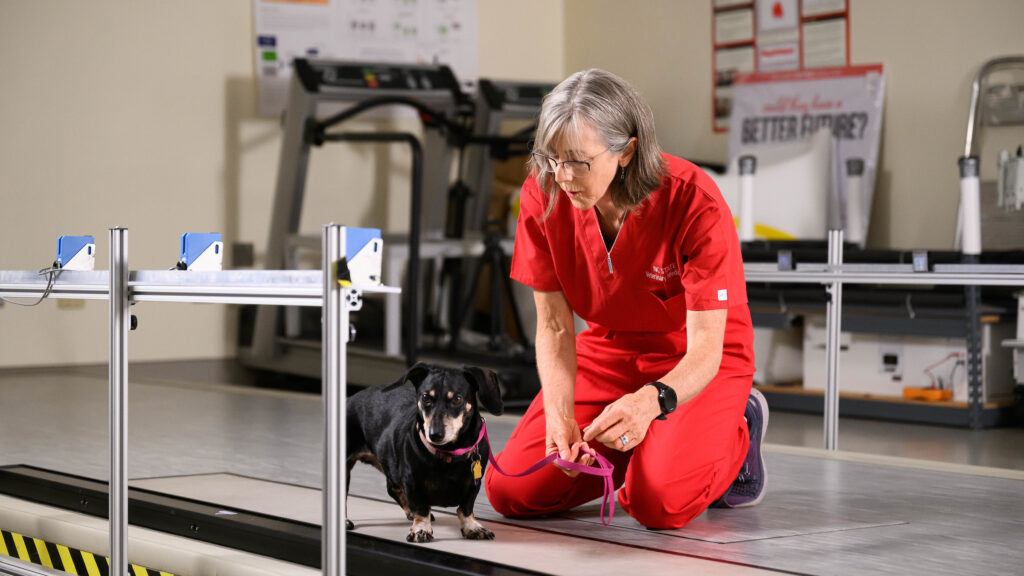
Biological aging is the most important risk factor for disease, disability and ultimately death in older dogs. The effects of aging in companion dogs are also a financial and psychological burden on their human caregivers. The early signs of aging may be ignored because of the misconception that biological aging is natural and therefore inevitable. The ability to detect, quantify and mitigate the harmful processes of canine aging would greatly enhance veterinary preventive medicine and animal welfare. This paper, whose authors include Margaret Gruen and Natasha Olby from NC State, proposes a new conceptual framework for aging in dogs: the Canine Geriatric Syndrome (CGS). CGS consists of the multiple, interrelated physical, functional, behavioral and metabolic changes that characterize canine aging, resulting in clinical impacts, including frailty, diminished quality of life and age-associated disease. It also identifies potential key components of a CGS assessment tool, a clinical instrument that would enable veterinarians to diagnose CGS, leading to the development and testing of interventions to prolong healthspan and lifespan in dogs by directly targeting the biological mechanisms of aging.
The paper was published in Frontiers in Veterinary Science.
Read it here: https://www.frontiersin.org/articles/10.3389/fvets.2022.853743/full
Using Platelet-Rich Plasma to Improve Treatment of Staphylococcus Infections
The leading cause of treatment failure in Staphylococcus aureus infections is the development of biofilms. Biofilms are a thin layer of slimy material formed by bacteria or other organisms that are highly resistant to conventional antibiotics. There is a lack of anti-biofilm agents in the antibiotic development pipeline. To address this problem, a team including NC State researchers Lauren Schnabel, Jessica Gilbertie, Gabriela Seiler, Bennett Deddens, Megan Jacob and Devorah Stowe, developed a platelet-rich plasma-derived biologic that has potent anti-biofilm aggregates. Clinical tests demonstrated the efficacy of the biologic involved and represents a new approach to restore antimicrobial activity against certain biofilms.
The study was published in Frontiers in Cellular and Infection Microbiology.
Read it here: https://www.frontiersin.org/articles/10.3389/fcimb.2022.895022/full
Determining the Risk of Disease Transmission by Using Disease-Tracking Statistics and Equine Movement Data
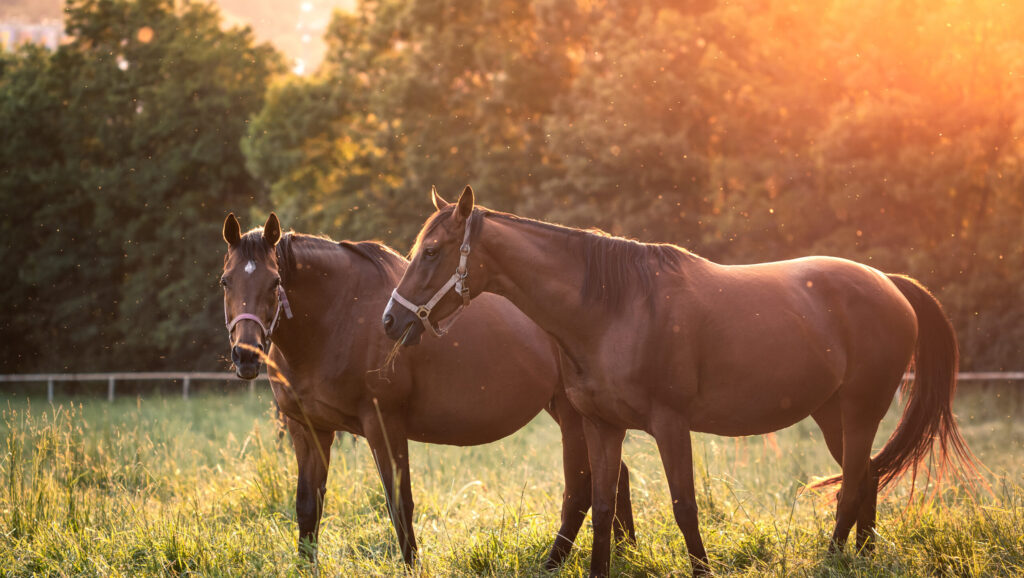
NC State researchers Gustavo Machado, Nicolas Cardenas and Felipe Sanchez collaborated with a colleague in Brazil to perform a statistical analysis comparing areas of high risk and low risk for a virus that causes equine infectious anemia with the effects of moving horses from one risk area to another. The study tracked the movement of horses between farms for two years. Factoring in variables such as climate, they determined that minimizing the movement of horses from high risk to low risk areas reduced the likelihood of new infections. By using the data gained from the study, officials were able to make informed decisions about issuing animal movement permits.
The study was published in the journal Transboundary and Emerging Diseases.
Read it here: https://onlinelibrary.wiley.com/doi/10.1111/tbed.14627
Measuring the Impact of Orally Consuming the Probiotic VSL#3 by Antibiotic-Treated Mice
A team of NC State researchers that included Casey Theriot and Rajani Thanissery from the College of Veterinary Medicine studied the effectiveness of the product VSL#3 in providing health benefits by surviving passage through the gastrointestinal tract and temporarily colonizing the digestive tract. This study illustrates the need to determine the ability of probiotics to colonize the host and impact the gut microbiota and suggests that multiple doses may be necessary for extended colonization.
The study was published in the journal Microbiome Research Reports.
Read it here: https://www.oaepublish.com/mrr/article/view/5047
Studying the Effects of Commercial Hog Operations on North Carolina Water Quality
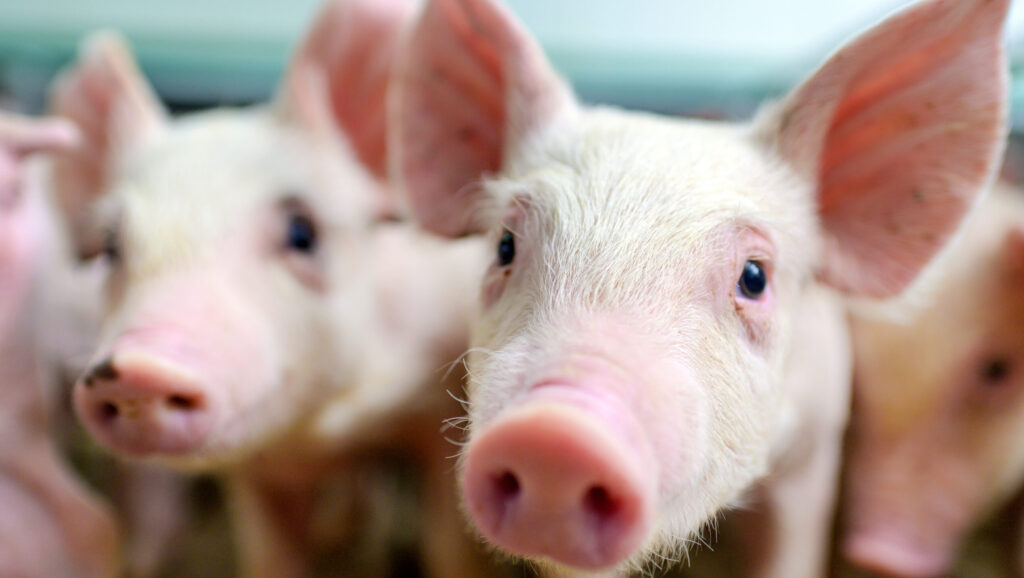
NC State researcher Megan Jacob was part of a team that compared the water quality of similar North Carolina watersheds with and without commercial hog operations. Hog operations produce large amounts of fecal material that in turn produce higher concentrations of manure and E. coli in the watersheds. This results in higher levels of microbial contaminants in surface water. In addition, the E. coli associated with commercial hog operations had higher levels of antimicrobial resistance. The study concluded that mitigation strategies such as optimizing waste treatment, buffers and antibiotic stewardship could help reduce microbial contaminants to surface water.
The study was published in the journal The Science of the Total Environment.
Read it here: https://www.sciencedirect.com/science/article/abs/pii/S0048969722031825?via%3Dihub
Examples of Hands-On Learning at the NC State College of Veterinary Medicine
College of Veterinary Medicine Dean Kate Meurs authored an article detailing some of the many ways the college provides unique opportunities for hands-on learning for its students. For example, the CVM is at the center of a nationwide effort to repopulate the world’s most critically endangered canine species, red wolves, maintaining a pack of the animals on its campus. In addition, every year Professor of Aquatic, Wildlife and Zoological Medicine Greg Lewbart takes a contingent of third-year students to the Galapagos Archipelago to do hands-on research of the wildlife and ecology. The college also maintains an 80-acre working farm on campus known as the Teaching Animal Unit, or TAU, a dynamic space for students to learn husbandry, production management and procedures used routinely in livestock production. For students passionate about marine animals, the NC State Center for Marine Sciences and Technology on the North Carolina coast offers access to unique marine sciences courses and a broad range of research and internship projects as well as hands-on field trips. To help students examine the inherent complexities of improving health on a worldwide scale, the college also provides a formal certificate in global health. The program offers an introduction to challenges and provides students an understanding of key concepts, tools and frameworks essential for continued study in global health.
The paper was published in the Journal of the American Veterinary Medical Association.
Read it here: https://avmajournals.avma.org/view/journals/javma/260/10/javma.22.05.0216.xml
Student Research Unplugged
We asked DVM students to explain their summer research in ways the average person could understand. In the first installment, third-year vet student Chris Ponticello talks about how his work on Dr. Christopher Marani’s study led to a partnership with NC State College of Engineering to create 3D printed models and more. In the second, student Stephanie Anderson helped bridge two research projects aimed at understanding and eliminating piglet pain in routine procedures performed throughout the United States – research that could change the swine industry for the better!

